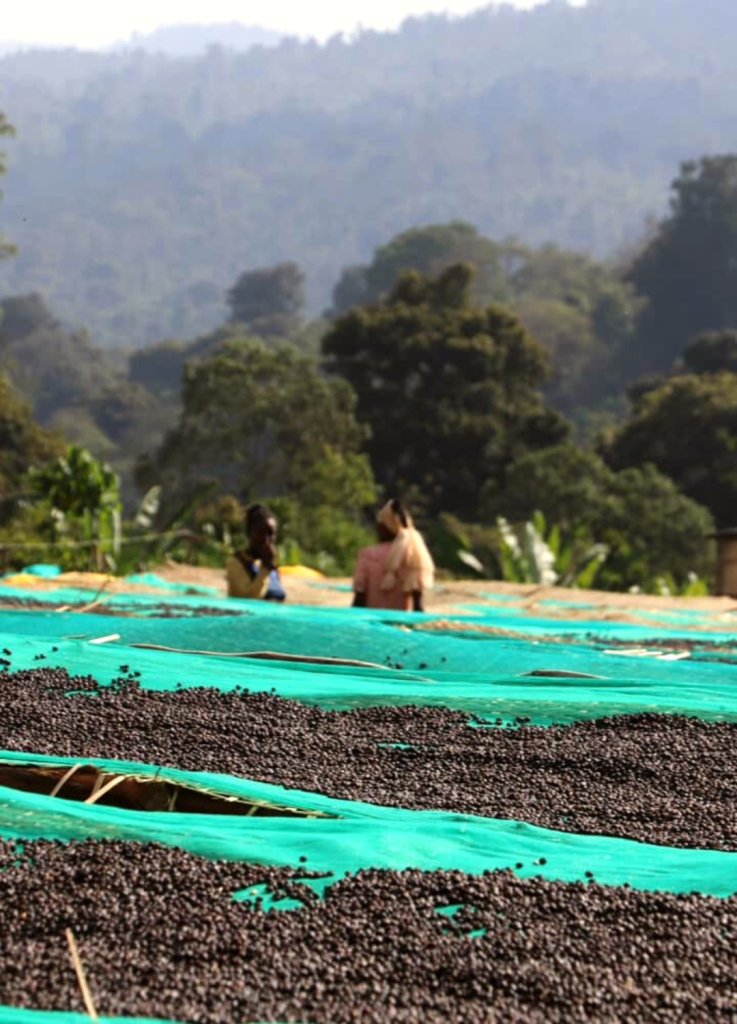
Burtukaana Danche #1
Burtukaana Danche #1 – perfectly structured and sweet coffee with the counterpoint of delicate florals, that evokes the wonderful sweet taste of natural Ethiopian coffee.

Burtukaana Danche #1 – perfectly structured and sweet coffee with the counterpoint of delicate florals, that evokes the wonderful sweet taste of natural Ethiopian coffee.
There has been an increased interest in this coffee in the Nordic countries (they like Burtukanna profiles), so we needed to talk about it this time.
Normally, washed coffee is the most popular among Ethiopian coffee lovers, but this one is setting a precedent.
Is summer influencing our choice of sweet profiles? Aside from that, we see that natural coffees from Ethiopia are becoming more common since the liberalization of the industry. Therefore, having spaces to discuss them is very important.
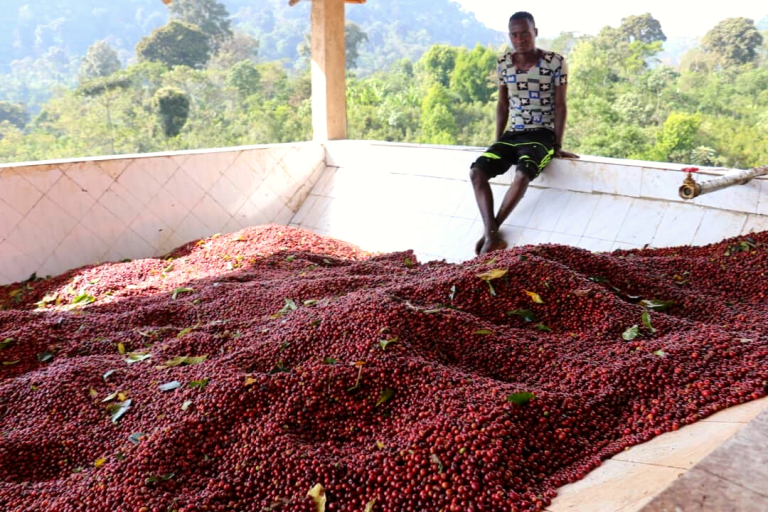

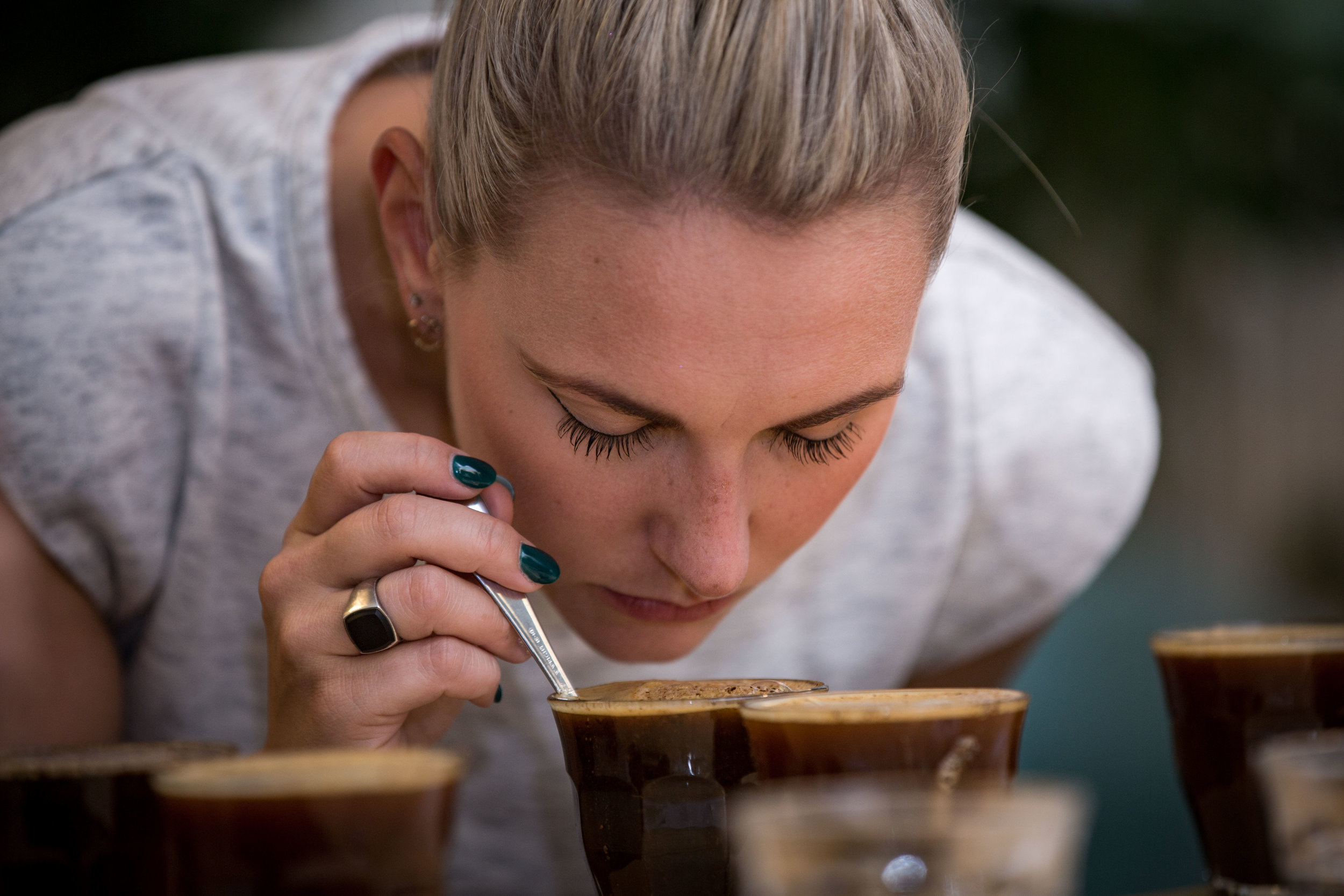
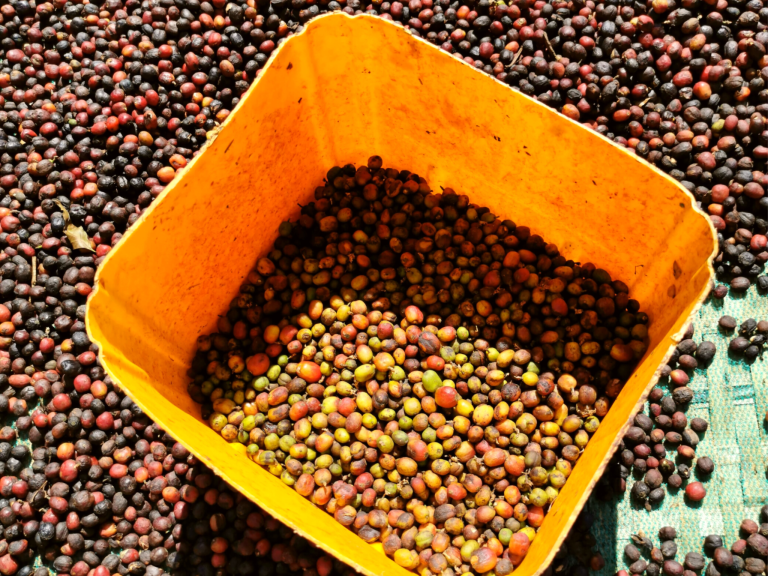
Let’s start by saying that this coffee belongs to the Burtukkana group in our flavor wheel, which helps us to track the traceability of Ethiopian coffees, since this is an origin where it is quite challenging to identify where the coffee actually came from. Flavour wheel
Burtukaana means “orange” in the Oromiffa language, and these coffees are round, citric, with stone fruit notes, and good structure overall.
Therefore, taking a closer look at it, Burtukaana Danche # 1 is rich with layered fruit of stone fruit, guava, cherry and tropical fruit. It is structured and has a clear acidity.
In conclusion, it is the perfect one for those who love jammy dark fruit notes in their coffees.
Ethiopia is once again among the roasters’ favorites, and their coffees do not go unnoticed.
Burtukaana Danche #1 comes from the Danche washing station in Chelbesa, Gedeo. They buy cherries from 400 farmers who produce good yields thanks to fertile soil and good farming methods.
This washing station has organic certification and is run by SNAP COFFEE, and its creator, coffee-passionate entrepreneur, Negusse D. Weldyes.
Further, SNAP focuses on sustainable practices, but you can read it here if you wish.
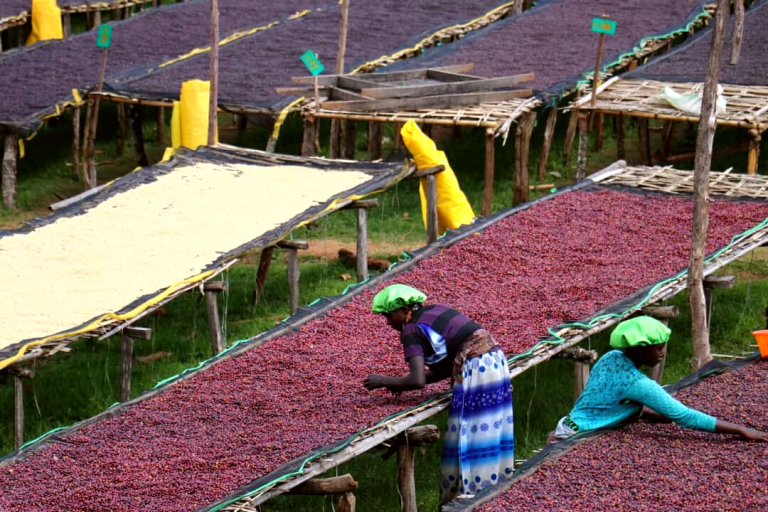
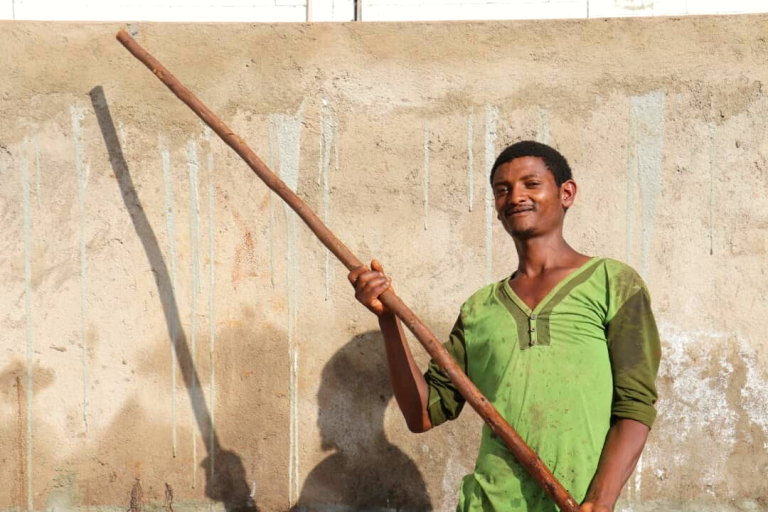
98% of the Ethiopian coffee farmers are smallholders with around 0.25-2 hectares of land. They sell and deliver their cherry usually to washing stations. These stations are either owned by or vertically integrated with an exporter.
The Ethiopian government is the one that sets a minimum regional cherry price at the beginning of the season.
Within each region, washing stations compete for cherry by increasing the cherry price, depending on demand. Changes happen daily and depending on the size and importance of the buyer, it can have a vast regional effect on price.
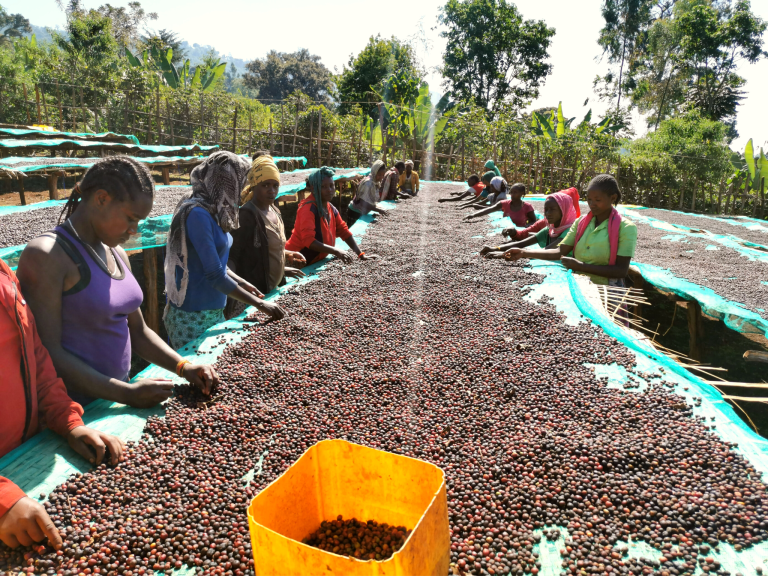
Leave a comment in our social media or send us a message.
The experience of cupping coffee has just turned into an exhibition!
| Cookie | Duration | Description |
|---|---|---|
| cookielawinfo-checkbox-analytics | 11 months | This cookie is set by GDPR Cookie Consent plugin. The cookie is used to store the user consent for the cookies in the category "Analytics". |
| cookielawinfo-checkbox-functional | 11 months | The cookie is set by GDPR cookie consent to record the user consent for the cookies in the category "Functional". |
| cookielawinfo-checkbox-necessary | 11 months | This cookie is set by GDPR Cookie Consent plugin. The cookies is used to store the user consent for the cookies in the category "Necessary". |
| cookielawinfo-checkbox-others | 11 months | This cookie is set by GDPR Cookie Consent plugin. The cookie is used to store the user consent for the cookies in the category "Other. |
| cookielawinfo-checkbox-performance | 11 months | This cookie is set by GDPR Cookie Consent plugin. The cookie is used to store the user consent for the cookies in the category "Performance". |
| viewed_cookie_policy | 11 months | The cookie is set by the GDPR Cookie Consent plugin and is used to store whether or not user has consented to the use of cookies. It does not store any personal data. |